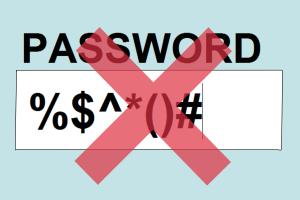Mastering Password Recall: Proven Techniques to Remember Forgotten Passwords

-
Quick Links:
- Introduction
- The Importance of Passwords
- Common Reasons for Forgotten Passwords
- Best Practices for Creating Memorable Passwords
- Techniques to Recall Forgotten Passwords
- Using Password Managers
- Setting Up Password Recovery Options
- Case Studies and Expert Insights
- Step-by-Step Guide to Recovering Passwords
- The Role of Security Questions
- The Future of Passwords
- FAQs
- Conclusion
Introduction
In the digital age, passwords serve as a gateway to our most personal information. It's no surprise that forgetting them can lead to frustration and a sense of vulnerability. In this comprehensive guide, we will explore various strategies and techniques to help you remember your passwords and ensure your digital security.
The Importance of Passwords
Passwords protect our online identities. From banking to social media, they are essential for safeguarding sensitive information. According to a report by Panda Security, 81% of data breaches are linked to weak or stolen passwords. Therefore, understanding how to remember them is critical.
Common Reasons for Forgotten Passwords
- Complexity: Many platforms require complex passwords, making them hard to remember.
- Frequent Changes: Regularly changing passwords can lead to confusion.
- Multiple Accounts: Juggling numerous accounts can overwhelm memory.
- Lack of Use: Infrequently used accounts often lead to forgotten passwords.
Best Practices for Creating Memorable Passwords
Creating a memorable password can simplify your digital life. Here are some best practices:
- Use Passphrases: Combine words into a phrase (e.g., "MyDogLovesToBark!").
- Incorporate Personal Information: Use information that is meaningful to you but hard for others to guess.
- Utilize Mnemonics: Create acronyms from memorable sentences.
- Vary Characters: Mix uppercase, lowercase, numbers, and symbols.
Techniques to Recall Forgotten Passwords
If you forget your password, there are several techniques to help jog your memory:
- Think of Context: Recall when and where you created the password, as well as what inspired it.
- Check Common Patterns: Many users have a pattern or structure they follow for their passwords.
- Try Variations: If you remember part of the password, try variations by adding or changing a few characters.
Using Password Managers
Password managers can store and encrypt your passwords, making it easier to manage multiple accounts securely.
- Pros: Convenience, security, and ability to generate strong passwords.
- Cons: Dependency on a third-party service, potential vulnerability if the master password is compromised.
Some popular password managers include:
- LastPass
- 1Password
- Dashlane
Setting Up Password Recovery Options
Many platforms allow you to set up recovery options, such as:
- Email Recovery: Receive a link to reset your password.
- SMS Recovery: Use your phone number to verify your identity.
- Security Questions: Answer pre-set questions to recover your account.
Case Studies and Expert Insights
Real-world examples illustrate various approaches to password management:
- Case Study 1: A 35-year-old professional used a password manager after forgetting multiple work-related passwords.
- Expert Insight: Security expert Jane Doe emphasizes the importance of changing passwords regularly and using two-factor authentication.
Step-by-Step Guide to Recovering Passwords
Here’s how to recover a forgotten password:
- Visit the login page of the website.
- Click on "Forgot Password?"
- Follow the prompts to verify your identity (via email or SMS).
- Check your email or SMS for a reset link.
- Create a new password and confirm it.
The Role of Security Questions
Security questions add an extra layer of protection, but they can also be a vulnerability if the answers are easily guessed or found online. Choose obscure and personal answers that only you would know.
The Future of Passwords
The digital landscape is evolving towards passwordless authentication methods, such as biometrics and two-factor authentication. These methods aim to enhance security while reducing the need for traditional passwords.
FAQs
- What should I do if I can't remember my password? Use the website's recovery options or consider a password manager.
- Are password managers safe? Yes, they encrypt your passwords, but ensure you choose a reputable service.
- What are good security questions? Choose questions that are not easily guessed or found online.
- How often should I change my passwords? Regularly, ideally every 3-6 months.
- Can I use the same password for multiple accounts? No, it's not recommended for security reasons.
- What if I forget my password manager’s master password? Most password managers offer recovery options; check their guidelines.
- Is it safe to write down passwords? It's safer than using simple passwords, but keep the written note secure.
- Can I recover a password without recovery options? It's difficult, but some platforms offer support to verify identity.
- What if my password is stolen? Change it immediately and enable two-factor authentication.
- Are there any tools to help remember passwords? Yes, password managers and memory techniques can assist.
Conclusion
Remembering passwords doesn't have to be a daunting task. By implementing best practices, utilizing technology like password managers, and understanding how to recover lost passwords, you can enhance both your memory and your digital security.
Random Reads
- The ultimate guide show symbols accents emojis mac
- How to write in code
- How to write smartphone review
- Mastering gmail access
- Mastering gmail access email delegation
- How to install linoleum flooring
- How to install logitech webcam
- Unlocking gps coordinates guide
- Unlock your blackberry
- How to make a safe room for your house